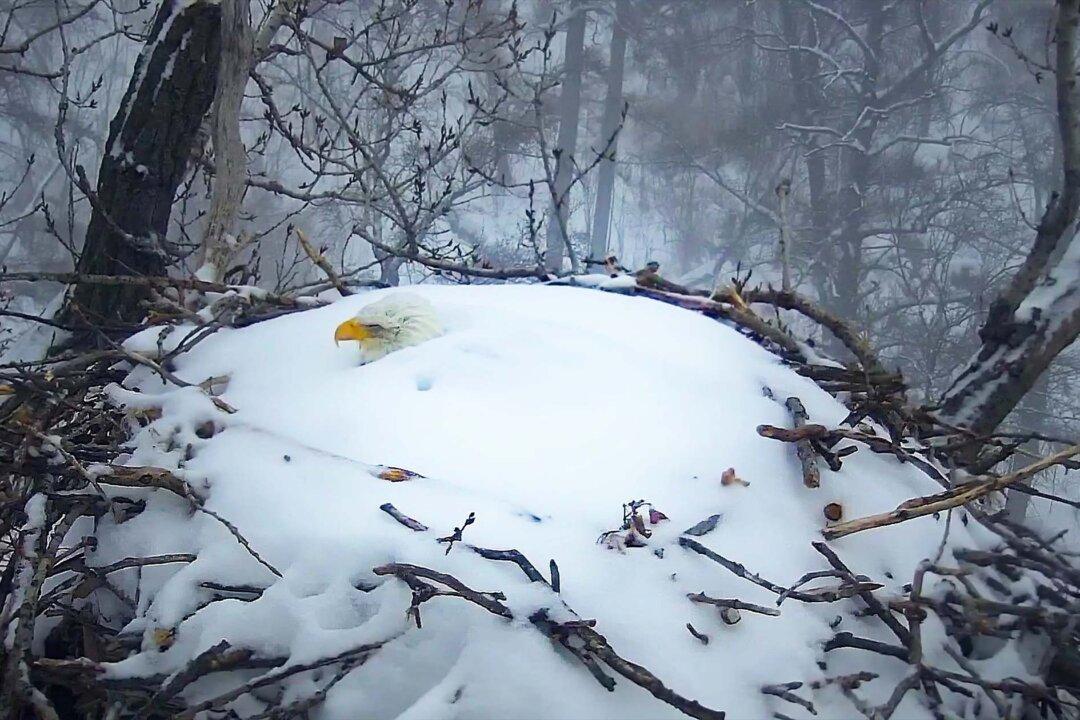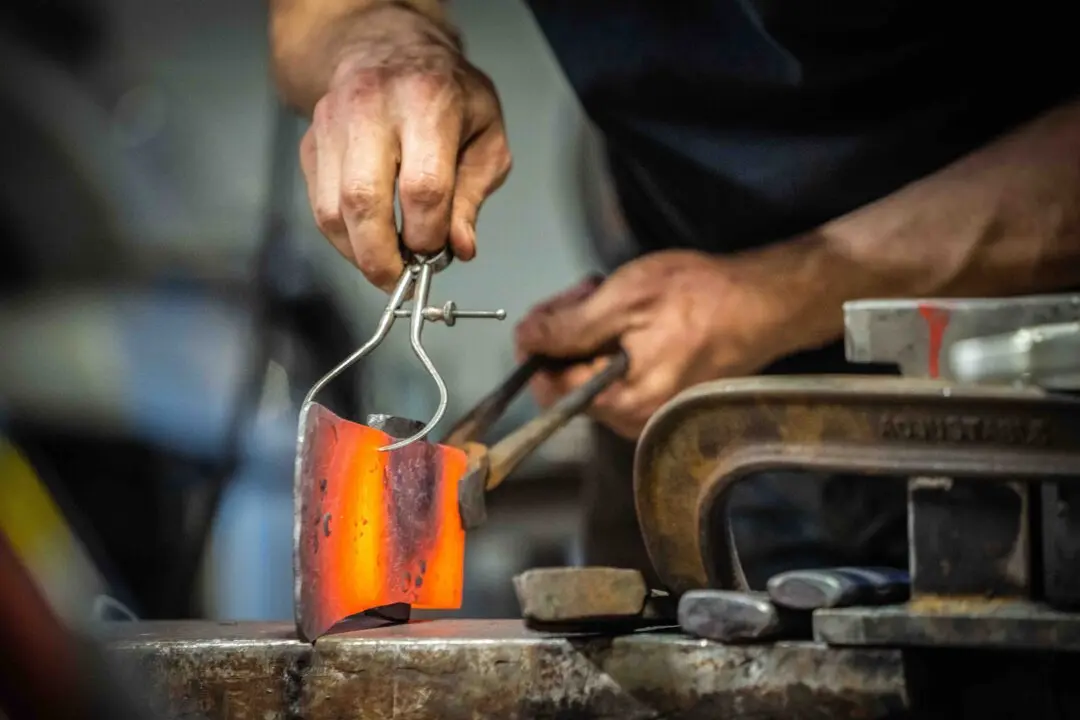A blanket of snow absolutely swamped the bald eagles’ nest. But mama eagle wasn’t going anywhere. After winter storms hit Minnesota in February, a remote wildlife camera caught one stalwart bald eagle pair resolutely warming their eggs despite being inundated with over a foot of the powdery white stuff.
Many nature lovers have been following the lives of the majestic bird family, their future hatchlings included, tracked in real-time on the state Department of Natural Resources’ (DNR) popular EagleCam. This particular heart-warming scene prompted officials and bird lovers alike to will for the survival of the avian family.






